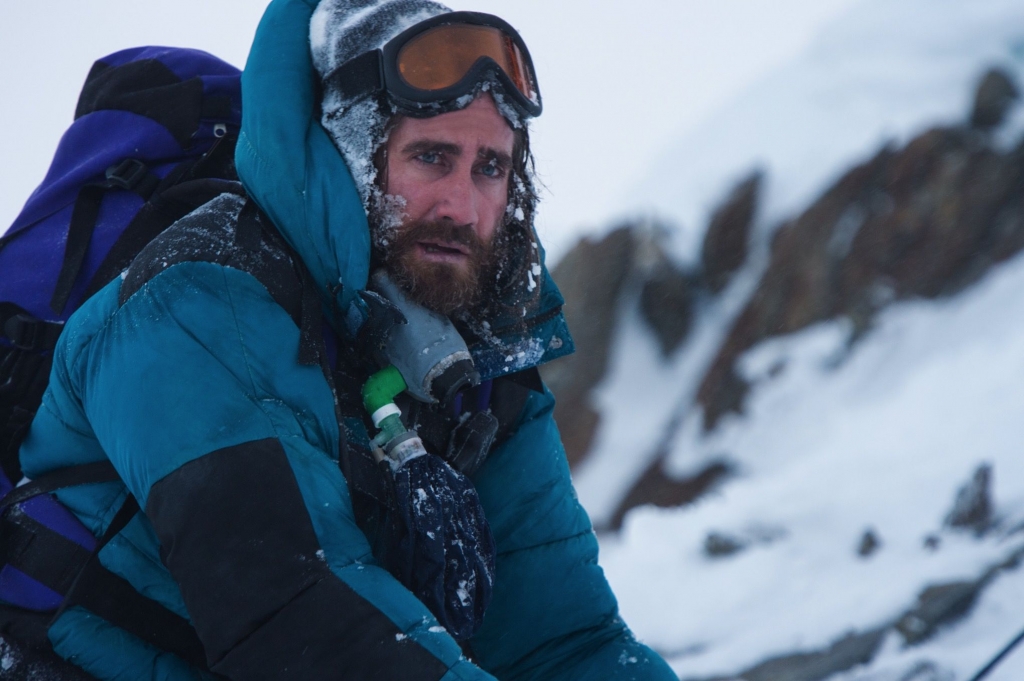-
Tips for becoming a good boxer - November 6, 2020
-
7 expert tips for making your hens night a memorable one - November 6, 2020
-
5 reasons to host your Christmas party on a cruise boat - November 6, 2020
-
What to do when you’re charged with a crime - November 6, 2020
-
Should you get one or multiple dogs? Here’s all you need to know - November 3, 2020
-
A Guide: How to Build Your Very Own Magic Mirror - February 14, 2019
-
Our Top Inspirational Baseball Stars - November 24, 2018
-
Five Tech Tools That Will Help You Turn Your Blog into a Business - November 24, 2018
-
How to Indulge on Vacation without Expanding Your Waist - November 9, 2018
-
5 Strategies for Businesses to Appeal to Today’s Increasingly Mobile-Crazed Customers - November 9, 2018
‘Everest’ review: An experience, not for the faint-hearted!
That means, essentially, that there are no villains in “Everest”, aside from the mountain itself, which is actually a good thing. There are sights and sounds that will make your heart race and your stomach drop. A few times you’ll find yourself clutching your armrest as climbers teeter dangerously close to the edge of the mountain, or when the camera swoops threateningly over bottomless drops. Krakauer is a character here, not a screenwriter.
Advertisement
Although several expeditions crowded the mountain on the fateful day in 1996, the focus is two of them: Rob Hall (Jason Clarke), the pioneering commercial expedition organiser who paid a heavy personal price for his efforts to give mountaineers the summit of their dreams, and Beck Weathers (Josh Brolin). Though all the adventure elements are in place in “Everest“, the emotions never land – not even during a conversation between Rob Hall and his pregnant wife, Jan (Keira Knightley), as his plight atop the mountain becomes dire. Brolin has a knack for capturing Texas braggadocio, in part because his mama was a Texan and once drove him from California to the Lone Star State so that he could eat his first Whataburger.
There is some levity as well – thanks to earthy expedition leader Scott Fischer (Gyllenhaal) – but mostly blunt foreboding. Everest boasts breathtaking cinematography and an illustrious cast of significant actors, including Jason Clarke, Jake Gyllenhaal, Josh Brolin, John Hawkes, Keira Knightley, Sam Worthington and Emily Watson. There’s no one to blame for this disaster that occurred on Mount Everest, no specific act of stupidity or any particular failure to observe safety protocols or even anyone who sticks their middle finger up at nature. It feels a bit hokey and transparent, but the biographical details are largely accurate. Director Baltasar Kormakur and writers William Nicholson and Simon Beaufoy show us what happened here but they’re pretty darned hazy about why.
Cinematographer Salvatore Totino (“The Da Vinci Code”) conveys to the last, most disturbing degree the punishing conditions on the mountainside. The film trots along briskly and hits beats with sitcom precision as we go from sea level to base camp to the ultimate ascent. Litter and discarded oxygen canisters are everywhere. He can bluntly ask what the audience is thinking, and he does at one point. You care about everyone, and you really want everyone to make it to the summit and back down safely. He may have gone through quite a lot during his experience working on “Everest” but he admitted that he is most terrified with the idea of not living life to the fullest. It’s the money-shot equivalent of that giant rogue wave in The flawless Storm. In a way, Everest nearly feels like two movies. One problem: Everest takes no prisoners.
That lack of characterization is often par for the course in disaster films. “Just understanding it can happen that fast, it’s that severe, you are that insignificant”. There are too many people to keep track of, too many threads to try to follow.
Advertisement
These threads aren’t picked up later on when Kormakur has a tough time flitting between different sites on the mountain and trying to create some geographical as well as dramatic cohesion. It’s dazzling but ultimately disposable, and not the kind of thing that’s likely to play well on a 27-inch TV.





























